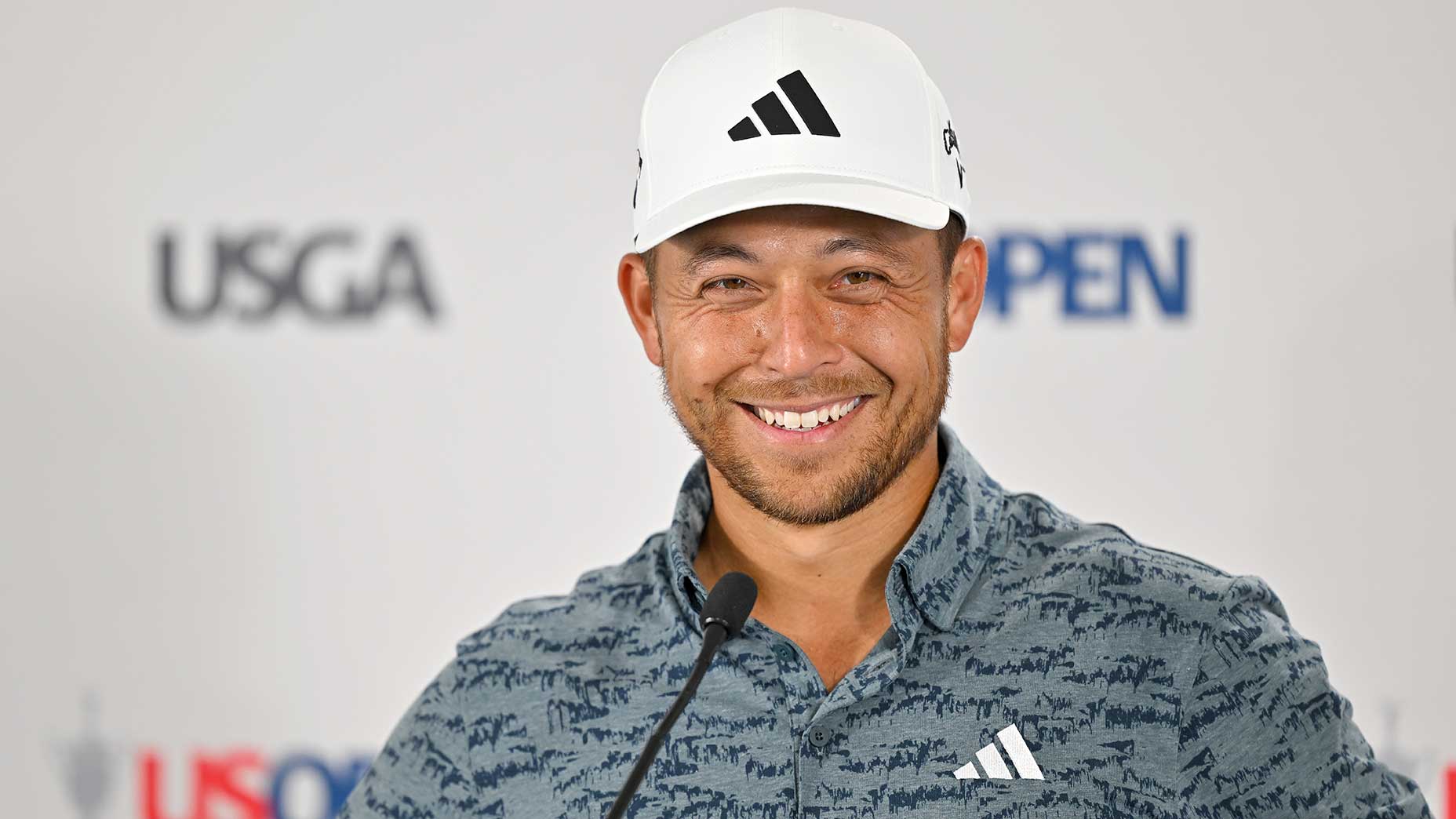LOS ANGELES — Twenty-two minutes after Rickie Fowler broke a century-old U.S. Open record, Xander Schauffele matched it.
But Xander wasn’t impressed.
“It’s just Thursday,” he said. “It’s literally just the first day of a tournament. It’s a good start.”
We should point out that Schauffele was, indeed, correct. Today is Thursday, the first day of this 123rd U.S. Open at Los Angeles Country Club. But the eight-under 62s Schauffele and Fowler shot were the first-ever 62s fired in the history of golf’s national championship, and they were just the second and third ones ever recorded in a major (matching Branden Grace’s 62 at the 2017 Open Championship at Royal Birkdale).
A “good start”? Yeah, we’d say so.
“I joked a bit earlier, I think the USGA will be a bit frustrated that the number was that low today,” said Scottie Scheffler. “I don’t think you’ll be seeing too much of that over the weekend.”
Fowler and Schauffele have company, too. Dustin Johnson and Wyndham Clark are six under, Rory McIlroy and Brian Harman are five under and a ton more are three under. Thirty-seven total players are under par — 12 more than the first round last year.
Want more low-score fodder? OK, the first-round scoring average of 71.34 was — wait for it — the lowest first-round scoring average in U.S. Open history. LACC’s North Course is a par 70, sure, but it is not the first par 70 to host a U.S. Open (last year’s host, The Country Club, was also a par 70). And plus, the championship’s been around for over a century, but today was the first time they never had an 80 in the first round. For cryin’ out loud!
So, what happened to our big, bad, beautiful U.S. Open setup?
“I thought the course was incredibly set up,” said Phil Mickelson, who shot 69. “They moved some tees up and they had some soft pins to let us get off to a good start, but it’ll play a lot harder as it goes on. But I think it’s such a great setup, that granted, the scores are a little bit lower with greens being receptive and so forth, but there’s a lot more teeth in this course if they want to use it.”
The last three U.S. Opens had a winning score of six under. That game plan was foiled at about 1:30 p.m. local, when Schauffele chalked up the second 62 of the day.
“You feel like you have to push it a little bit [when you see those scores],” Mickelson said. “But you can’t push too hard here because it’ll come back and bite you.”
On the high-scoring side, the biggest surprise of the day was five-time major winner Brooks Koepka. Koepka won the PGA Championship last month and was the player in the field most everyone thought would be in contention this week. But on Thursday, Koepka shot 71, leaving him nine strokes off the lead.
His playing partner, Rory, had one of the best starts of the afternoon wave, birdieing his first two and shooting 65. He played nearly flawless golf and didn’t miss a green until the 16th hole. He missed his second green in regulation on 18 when his ball found the rough just left of the green. That led to his first real blemish of the day, an unlucky whiff when his wedge slid under the ball as he was trying to pick it clearly. He hit his next shot to 11 feet and made that to save bogey — a huge clutch putt to turn a bad break into positive momentum heading into Friday.
LACC played at an average of 1.371 strokes over par, which was significantly lower than last year’s first round at Brookline (5.780 strokes over par) and the first round at Torrey Pines in 2021 (3.720 over par). This rough is gnarly and fairway bunkers here are called “proper penalties” — code for don’t go in them. But the fairways are also big, and Schauffele and Fowler hit 10 of 13 in their record-breaking rounds. Aaron Wise? He hit only six and shot 79. That’s one crucial difference, as the majority of the field found fairways with more regularity than the PGA Tour average. Tees were also moved up on a handful of holes, with player-friendly pins and receptive greens giving way to better scoring.
But don’t fret, carnage-lovers. These things have a way of evening themselves out — pins can be tucked and the turf can run faster. Remember that six-under score that won the past three U.S. Opens? The first-round lead the last two years was four under, and three years ago the Round 1 lead was five under.
Now the question is, what comes next? The agronomy team met in the early afternoon on Thursday, which would have been a fun meeting to listen in on if we were invited. How will they react? Do they react? How do we get LACC harder without getting too hard? Is it easier to soften a course after it’s tough or toughen it after it’s soft?
“I always worry when you play a course that can get firm you can typically see Thursday morning plays very soft, Thursday afternoon obviously a little bit firmer, but nothing crazy,” Max Homa said. “Usually by Friday afternoon, it can be nuts.”
And, as Xander would tell us, tomorrow is Friday. There’s still a whole lot more golf coming.
